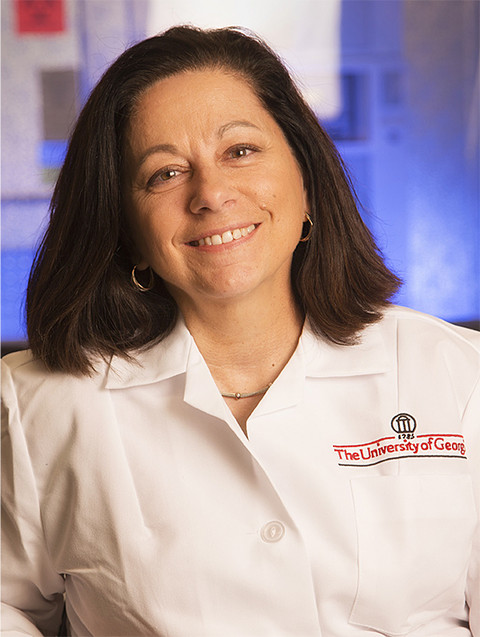Dr. Karen Norris, Ph.D.
Infectious diseases
The University of Georgia
Recruited: 2016
Karen Norris is one of the nation’s leading experts on infectious disease. Her work is particularly focused on the mechanisms of opportunistic infections, which pose serious risks to people with weakened immune systems.
Norris’ research is informing new vaccines and therapies for many infectious diseases. It’s also yielding new knowledge on how the natural aging process as well as chronic diseases like HIV can change and weaken the immune system. Many of the diseases associated with aging, like diabetes, heart conditions or lung disease, are also common problems for y ounger HIV-infected individuals who are managing the disease long-term with retroviral therapies. Norris is exploring the reasons why.
One of the Norris lab’s most notable accomplishments is creating the first pre-clinical model of Pneumocystis pneumonia (PCP), a frequent and severe respiratory illness for people with weakened immune systems. Norris was also the first to demonstrate that this form of pneumonia contributes to the development of chronic obstructive pulmonary disease, or COPD, a progressive lung disease that makes it difficult for patients to breathe; COPD is the third leading cause of death in the U.S. While COPD commonly afflicts smokers, it also affects people whose immune systems are compromised due to HIV.
Using the research model t hey created, Norris and her team led the development of a vaccine against PCP. The vaccine is based on a recombinant protein that has been shown to heighten immune responses to PCP in patients with HIV. Norris and her team have patented the vaccine, which in 2016 was demonstrating promising results in pre-clinical trials.
Norris’ lab is also investigating respiratory syncytial virus infection, or RSV. While RSV’s symptoms are mild for children and adults, the illness is serious and can even be fatal for elderly people and infants, especially premature infants. Because RSV is a leading cause of virus-related death for infants — and because no vaccine or effective drug exists — the illness is a major area of investigation for many disease researchers.
Norris is developing a model of RSV that she and her fellow researchers can use to study the disease and develop treatments. Her model may help researchers better understand the age-related immune system changes that render infants and the elderly particularly vulnerable to the same illness that older children or younger adults can easily fight off. Norris is also collaborating on RSV vaccine research with UGA colleague and fellow GRA Eminent Scholar Ted Ross.
Research
- Immunopathogenesis of HIV-associated pulmonary hypertension
- Co-morbidities and opportunistic infections associated with HIV
- Vaccine strategies again pneumocystis and other fungal pathogens
- Immune responses to RSV infection
Straight from the Scholar
“We’ve really expanded what my team can do here because of the facilities and resources available. And because of the expertise they’re building at the Center for Vaccines and Immunology, I can collaborate with the researchers here to help facilitate the development of pre-clinical models and translational studies necessary for eventual clinical trials.”
Intellectual Property
1 patent; 2 pending

